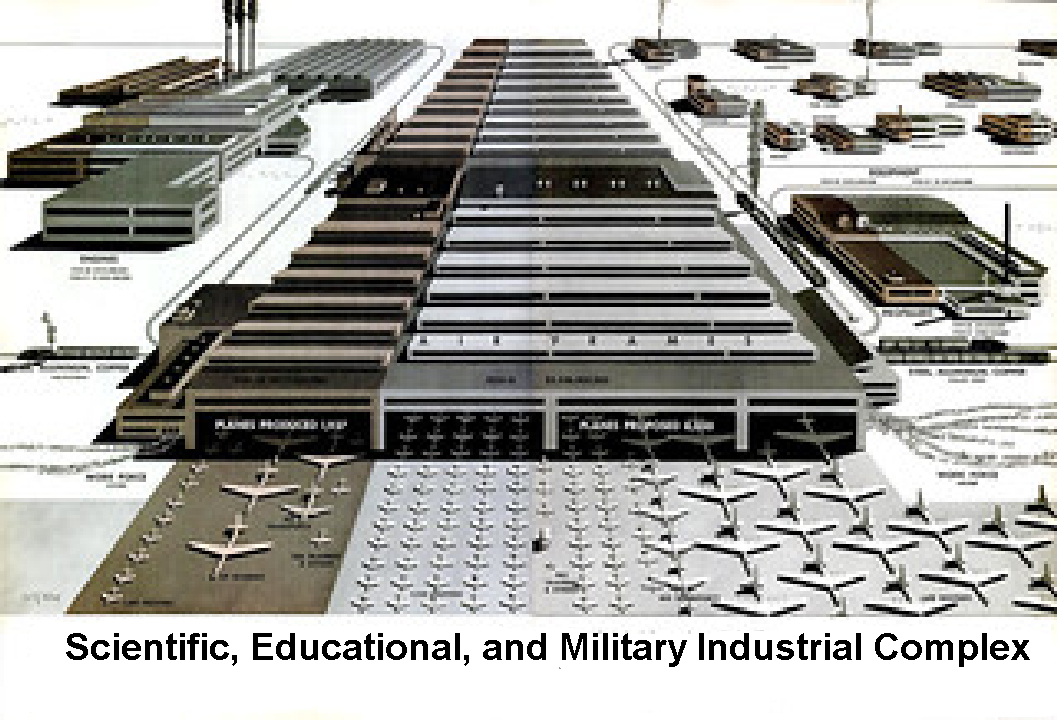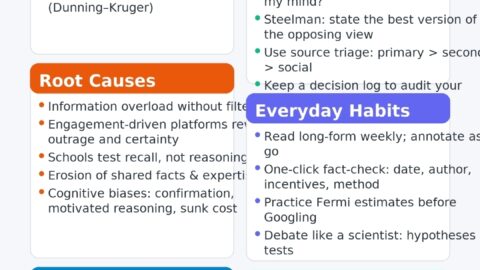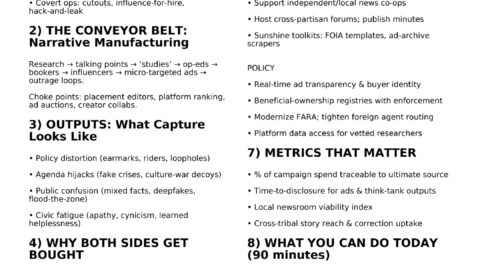“Life is like arriving late for a movie, having to figure out what was going on without bothering everybody with a lot of questions, and then being unexpectedly called away before you find out how it ends.” — Joseph Campbell
This vivid imagery is spot on how life can be understood, even though it probably is not what a person wants to hear. We have all experienced either being the one “late” for a movie or being the one answering questions for the those who have arrived late for the film. Whether we are the late one or being asked to describe what is happening, it could be annoying not knowing what is going on in the script.
In trying to figure out life, it is important to have mentors to help guide one through the developing stages of life from a child, to adolescence to various degrees of being an adult with their own stages.
“If I have seen further, it is by standing on the shoulders of Giants.” — Isaac Newton
We must look to the present by way of those living and are contemporaries to ourselves but let us not forget to look at the past through the lens of history and to read great books to understand where we stand in life and as a society and how we got here. In order to understand where we are at in the movie of life and society as Mr. Campbell describes, it is critical we return to past events.
By bringing up past people, words and concepts to humanity who wasn’t around during the time of Eisenhower, like myself or who aren’t familiar with his Farewell address, will see the present in a whole new light and perspective will probably have a lot of questions answered and even more questions to be asked as our curiosity hopefully grows to know who, why, when and how.
What was President Eisenhower trying to relate and warn us about. Was he trying to tell us that we were at a crossroads and had to choose between two different paths?
One can listen or read Eisenhower’s Farewell address.
“Throughout America’s adventure in free government, our basic purposes have been to keep the peace, to foster progress in human achievement, and to enhance liberty, dignity, and integrity among peoples and among nations. To strive for less would be unworthy of a free and religious people. Any failure traceable to arrogance, or our lack of comprehension, or readiness to sacrifice would inflict upon us grievous hurt, both at home and abroad.”
Here Eisenhower talks about a common thread running through America to pursue “liberty, dignity and integrity among peoples and among all nations.” It is a worthy cause for a “free and religious people.”
“We face a hostile ideology global in scope, atheistic in character, ruthless in purpose, and insiduous [insidious] in method. Unhappily, the danger it poses promises to be of indefinite duration.”
As this common thread has been flowing through America and in all the world, Eisenhower makes mention of something very “insidious” that America faces “global” in nature, that is “hostile” to American ideology, opposite of what we stand for as it is “ruthless in purpose“, in 1961.
“Crises there will continue to be. In meeting them, whether foreign or domestic, great or small, there is a recurring temptation to feel that some spectacular and costly action could become the miraculous solution to all current difficulties: a huge increase in newer elements of our defenses; development of unrealistic programs to cure every ill in agriculture; a dramatic expansion in basic and applied research. These and many other possibilities, each possibly promising in itself, may be suggested as the only way to the road we wish to travel.”
As I read this portion of the talk, I sense that the “recurring temptation” to solve all crises with the same “action” is similar to “insanity by doing the same thing over and over again and expecting different results.”
He speaks of:
- “a huge increase” in our defenses
- “unrealistic programs” in curing all ills in agriculture
- “dramatic expansion” in research
“But each proposal must be weighed in the light of a broader consideration: the need to maintain balance in and among national programs, balance between the private and the public economy, balance between the cost and hoped for advantages, balance between the clearly necessary and the comfortably desirable, balance between our essential requirements as a nation and the duties imposed by the nation upon the individual, balance between actions of the moment and the national welfare of the future. Good judgment seeks balance and progress. Lack of it eventually finds imbalance and frustration. The record of many decades stands as proof that our people and their Government have, in the main, understood these truths and have responded to them well, in the face of threat and stress.”
“Good judgment seeks balance and progress. Lack of it eventually finds imbalance and frustration.” This is the key, to have good judgment and wisdom to balance advancements in humanity. Without it, society becomes out of whack and spirals out of harmony with what is healthy and wholesome, into a slow burn and chaos leading us into tyranny and feudalism to the trained eye and mind.
“But threats, new in kind or degree, constantly arise. Of these, I mention two only.”
“A vital element in keeping the peace is our military establishment. Our arms must be mighty, ready for instant action, so that no potential aggressor may be tempted to risk his own destruction. Our military organization today bears little relation to that known of any of my predecessors in peacetime, or, indeed, by the fighting men of World War II or Korea.”
We learn that our “military establishment” is not the same organization prior to that of Korea. This means it has taken a turn for what is un-American:
- hostile ideology
- global in scope
- ruthless in purpose
- insidious in method
“Until the latest of our world conflicts, the United States had no armaments industry. American makers of plowshares could, with time and as required, make swords as well. But we can no longer risk emergency improvisation of national defense. We have been compelled to create a permanent armaments industry of vast proportions. Added to this, three and a half million men and women are directly engaged in the defense establishment. We annually spend on military security alone more than the net income of all United States cooperations — corporations.”
Now we have a mammoth, leviathan, and colossal “armaments industry” with a gigantic work force employed by the “defense establishment.” All in the form of corporations and monopolies (see the series on Monopolies being un-American).
“It is difficult to get a man to understand something, when his salary depends on his not understanding it.” — Upton Sinclair
Think about it. How many people will even question policies, or direction of an individual, family, organization, or government when they are getting a pay check from that area of employment. They don’t dare rock the boat as they might lose prestige, a pay raise or even their job that has a good salary and benefits. The pressures of keeping their job, might be more beneficial than taking the risks to expose something that is wrong, if they even recognize it as such. Attaching morals or lack of scruples to money has a negative consequence for society and tge individual for the present and future generations.
“Now this conjunction of an immense military establishment and a large arms industry is new in the American experience. The total influence — economic, political, even spiritual — is felt in every city, every Statehouse, every office of the Federal government. We recognize the imperative need for this development. Yet, we must not fail to comprehend its grave implications. Our toil, resources, and livelihood are all involved. So is the very structure of our society.”
We learn that this “immense military establishment” and “large arms industry” is something not akin to the American way of life as it has “grave implications” and influences into all areas and aspects of life and everywhere through the country.
It became the new framework, “structure of our society” the “new normal”.
Does this mean it has changed our form of government from the original intent. I would argue, yes. It fits into having grave implications that are dangerous to our freedoms and our republic.
This is not a left or right issue that the fake media has led the majority of people to think. This is an American problem that has large and deadly consequences to our culture and the American way of life.
“In the councils of government, we must guard against the acquisition of unwarranted influence, whether sought or unsought, by the military-industrial complex. The potential for the disastrous rise of misplaced power exists and will persist. We must never let the weight of this combination endanger our liberties or democratic processes. We should take nothing for granted. Only an alert and knowledgeable citizenry can compel the proper meshing of the huge industrial and military machinery of defense with our peaceful methods and goals, so that security and liberty may prosper together.”
We can’t have “unwarranted influence” weighing in with its money influence, connections, or pressure on government decisions as it will be “disastrous” with intoxicating power as it “endanger[s] our liberties” and “democratic processes“.
Americans who are “alert and knowledgeable” can constrain, enforce and impel the “proper meshing of the huge industrial and military machinery of defense with our peaceful methods and goals, so security and liberty may prosper together.”
We can’t fix a problem, if we don’t know there is a problem. This needs to be in the open and be transparent so we can have an honest and frank discussion. But instead, hidden by censorship, money and whitewashing of history and left out of public discussion on purpose.
“Akin to, and largely responsible for the sweeping changes in our industrial-military posture, has been the technological revolution during recent decades. In this revolution, research has become central; it also becomes more formalized, complex, and costly. A steadily increasing share is conducted for, by, or at the direction of, the Federal government.”
Is Eisenhower telling us that the new military industrial complex, which is “largely responsible for the sweeping changes” has evolved and morphed through the process and time to a “revolution” of our standing army with multiple organizations and money brokers paving the way in a massive change in the policies and direction of our military as it sought war instead of peace. This not only changes our military but our government (federal) as well.
“Once weapons were manufactured to fight wars. Now wars are manufactured to sell weapons.” — Arundhati Roy
He also tells us how “research” has become front and center and to the core of the military industrial complex by being “formalized, complex and costly” as the Federal government is at the helm and directing this massive arm and reach of the government.
SCIENCE AND HIGHER EDUCATION HAVE ALSO GONE THROUGH A REVOLUTION
“Today, the solitary inventor, tinkering in his shop, has been overshadowed by task forces of scientists in laboratories and testing fields. In the same fashion, the free university, historically the fountainhead of free ideas and scientific discovery, has experienced a revolution in the conduct of research. Partly because of the huge costs involved, a government contract becomes virtually a substitute for intellectual curiosity. For every old blackboard there are now hundreds of new electronic computers. The prospect of domination of the nation’s scholars by Federal employment, project allocations, and the power of money is ever present — and is gravely to be regarded.”
Eisenhower talks about how the independent “inventor” going through the scientific method in their own shop has been taken over and “overshadowed by task forces of scientists in laboratories” as they have been nationalized and coopted by the Federal government. Money has also led to the corrupting of science.
From history, it fits into Operation Paperclip and corresponds into the timeframe of the new radical evolution of the military and science industrial complex as research was at the core of this revolution.
Not only has this coup happened in military and science, but we learn again from someone in the know that this germ and disease seeped into Higher Education as it shifted and transformed “in the conduct of research.”
We learn “a government contract becomes virtually a substitute for intellectual curiosity“, instead of being organic and natural the contract and money would come with strings attached to pave the way for a dogmatic adherence to ideology of those paying for the certain research-based direction and outcomes.
“Yet, in holding scientific research and discovery in respect, as we should, we must also be alert to the equal and opposite danger that public policy could itself become the captive of a scientific-technological elite.”
We are told it is our duty to be vigilant to the threat, menace, and risk how science “itself” evolved and morphed into being ensnared, bound and confined to the “scientific-technological elite.”
“It is the task of statesmanship to mold, to balance, and to integrate these and other forces, new and old, within the principles of our democratic system — ever aiming toward the supreme goals of our free society.”
It is only for wise men and women to assimilate, consolidate and coordinate the old with the new “within the principles of our democratic system” to continue on the path of a “free society“.
“Another factor in maintaining balance involves the element of time. As we peer into society’s future, we — you and I, and our government — must avoid the impulse to live only for today, plundering for our own ease and convenience the precious resources of tomorrow. We cannot mortgage the material assets of our grandchildren without risking the loss also of their political and spiritual heritage. We want democracy to survive for all generations to come, not to become the insolvent phantom of tomorrow.”
We can’t “live only for today” by “plundering” and mortgaging “the material assets of our grandchildren” as it will risk “the loss” of posterities “political and spiritual heritage.”
“We may consider each generation as a distinct nation, with a right, by the will of it majority, to bind themselves, but not to bind the succeeding generation, more than the inhabitants of another country.” — Thomas Jefferson
We learn how a nation is not only linear and corporeal, but intangible, ethereal and spiritual.
“It is incumbent on every generation to pay its own debts as it goes. A principle which if acted on would save one-half the wars of the world.” — Thomas Jefferson
Here we learn how each generation and staying out of debt are critical to maintain freedom.
“During the long lane of the history yet to be written, America knows that this world of ours, ever growing smaller, must avoid becoming a community of dreadful fear and hate, and be, instead, a proud confederation of mutual trust and respect. Such a confederation must be one of equals. The weakest must come to the conference table with the same confidence as do we, protected as we are by our moral, economic, and military strength. That table, though scarred by many past frustrations — past frustrations, cannot be abandoned for the certain agony of disarmament — of the battlefield.”
As the world grows smaller due to our technological advancements, America can not become “fear and hate“, but a “confederation of mutual trust and respect” of “equals.”
“Disarmament, with mutual honor and confidence, is a continuing imperative. Together we must learn how to compose differences, not with arms, but with intellect and decent purpose. Because this need is so sharp and apparent, I confess that I lay down my official responsibilities in this field with a definite sense of disappointment. As one who has witnessed the horror and the lingering sadness of war, as one who knows that another war could utterly destroy this civilization which has been so slowly and painfully built over thousands of years, I wish I could say tonight that a lasting peace is in sight.”
Diplomacy is critical to learn and to apply as the ultimate goal should be “lasting peace.”
As I read and listen to President Dwight Eisenhower farewell address. My impressions are how he was warning Americans, telling us that we were at a crossroads, and we had a choice on which path America would take.
One path was that of continual wars due to the military industrial complex as it revolutionized the halls of Congress filled with corruption and world conquest through fear and hate.
The other way would be a friendship of “lasting peace”.
Which path has America forged?
“They fear love because it creates a world they can’t control.” — George Orwell
President Woodrow Wilson made reference to something very sinister and insidious similar to what Eisenhower made in his Farewell address. It has the same mark and feel in creating a common thread of tyranny, oligarchs and feudalism to the trained eye.
“Since I entered politics, I have chiefly had men’s views confided to me privately. Some of the biggest men in the United States, in the field of commerce and manufacture, are afraid of somebody, are afraid of something. They know that there is a power somewhere so organized, so subtle, so watchful, so interlocked, so complete, so pervasive, that they had better not speak above their breath when they speak in condemnation of it.
They know that America is not a place of which it can be said, as it used to be, that a man may choose his own calling and pursue it just as far as his abilities enable him to pursue it; because to-day, if he enters certain fields, there are organizations which will use means against him that will prevent his building up a business which they do not want to have built up; organizations that will see to it that the ground is cut from under him and the markets shut against him. For if he begins to sell to certain retail dealers, to any retail dealers, the monopoly will refuse to sell to those dealers, and those dealers, afraid, will not buy the new man’s wares.
And this is the country which has lifted to the admiration of the world its ideals of absolutely free opportunity, where no man is supposed to be under any limitation except the limitations of his character and of his mind; where there is supposed to be no distinction of class, no distinction of blood, no distinction of social status, but where men win or lose on their merits.
I lay it very close to my own conscience as a public man whether we can any longer stand at our doors and welcome all newcomers upon those terms. American industry is not free, as once it was free; American enterprise is not free; the man with only a little capital is finding it harder to get into the field, more and more impossible to compete with the big fellow. Why? Because the laws of this country do not prevent the strong from crushing the weak. That is the reason, and because the strong have crushed the weak the strong dominate the industry and the economic life of this country. No man can deny that the lines of endeavor have more and more narrowed and stiffened; no man who knows anything about the development of industry in this country can have failed to observe that the larger kinds of credit are more and more difficult to obtain, unless you obtain them upon the terms of uniting your efforts with those who already control the industries of the country; and nobody can fail to observe that any man who tries to set himself up in competition with any process of manufacture which has been taken under the control of large combinations of capital will presently find himself either squeezed out or obliged to sell and allow himself to be absorbed” — Woodrow Wilson, The New Freedom, 1913
This same thread of designing men and women is referenced in 1913 by a president of the United States and then again in 1961 by a president of the United States. Its not happenstance, but coincidences.
“Coincidences means you’re on the right path.” ― Simon Van Booy
Let’s see what another former President of the United States of America says about the same thread, coincidence and path.
“For we are opposed around the world by a monolithic and ruthless conspiracy that relies primarily on covert means for expanding its sphere of influence . . . on infiltration instead of invasion, on subversion instead of elections, on intimidation instead of free choice, on guerrillas by night instead of armies by day. It is a system which has conscripted vast human and material resources into the building of a tightly knit, highly effective machine that combines military, diplomatic, intelligence, economic, scientific and political operations. Its preparations are concealed, not published. Its mistakes are buied, not headlined. Its dissenters are silenced, not praised. No expenditure is questioned, nor rumor is printed, no secret revealed.” — President John F. Kennedy







